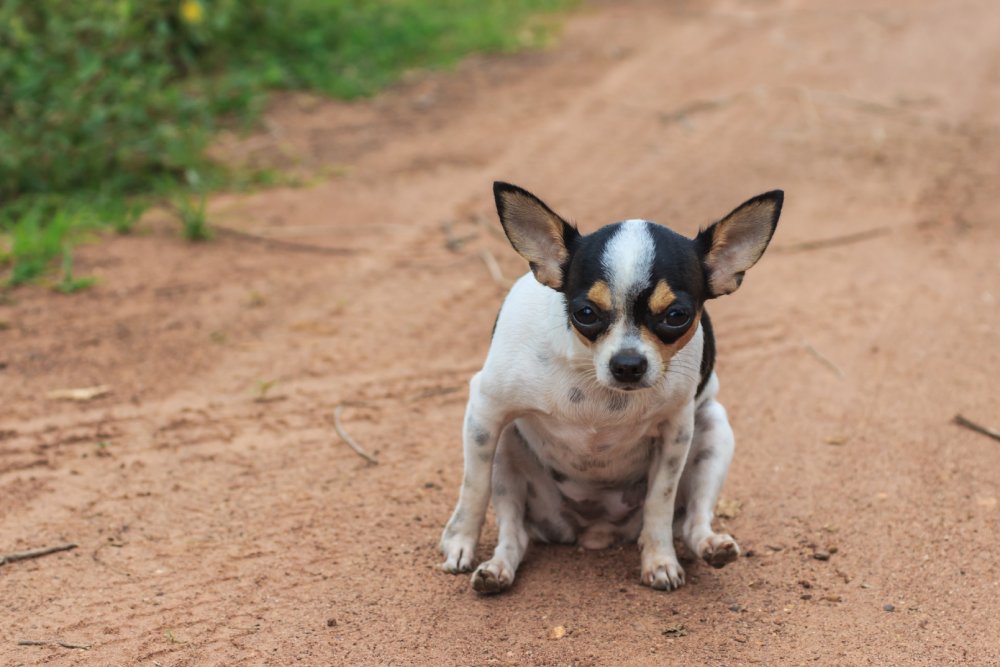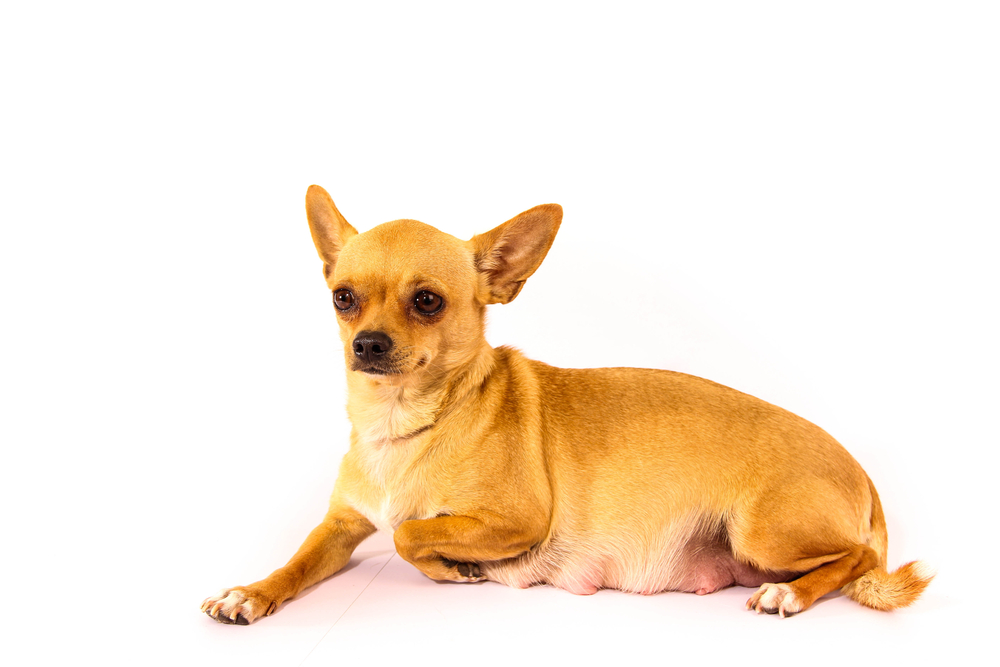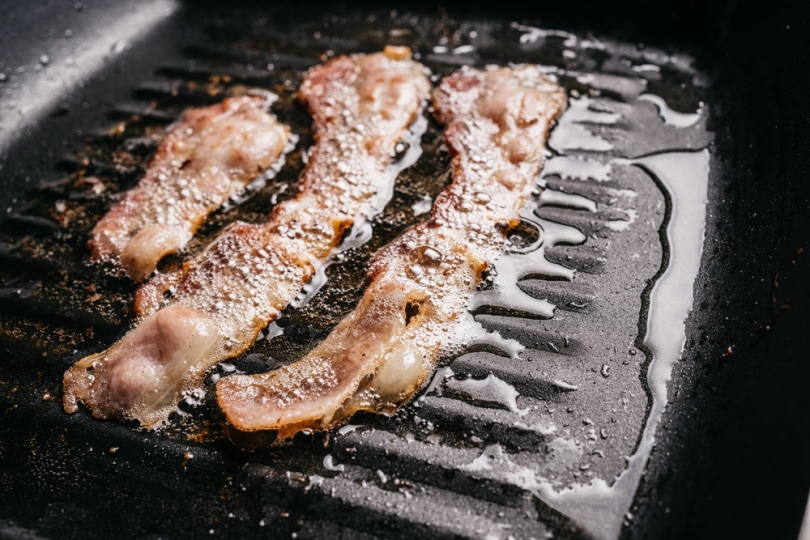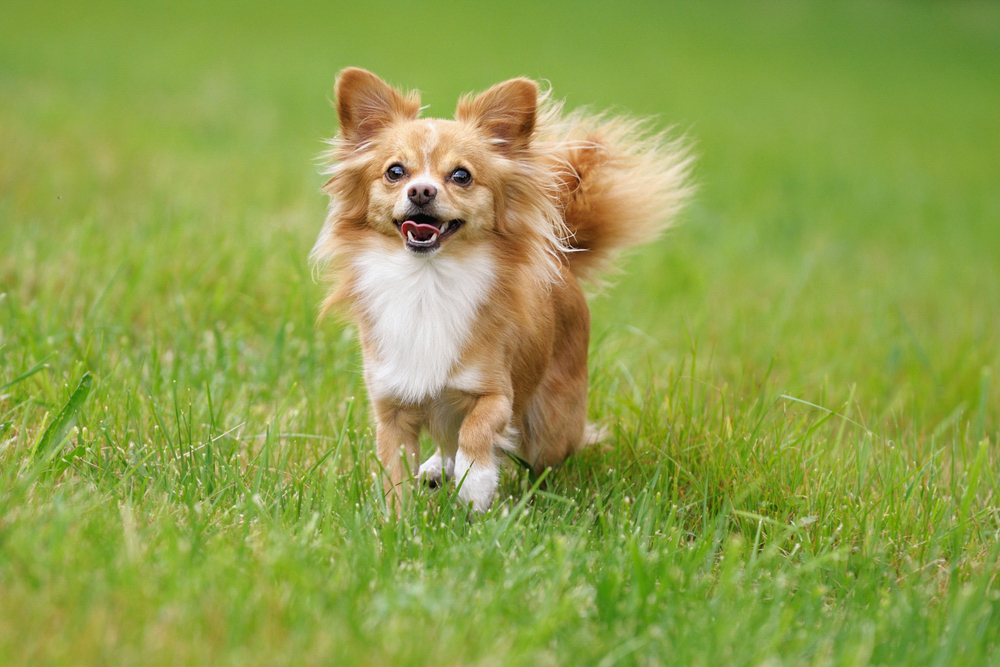Click to Skip Ahead
Your dog is dragging their back end across the carpet. It’s a bit gross and also frustrating. What is causing your dog to scoot, and can you do anything to help your pup? Let’s go over why your dog is scooting and what you can do to help.
Why Is My Dog Scooting?
Unfortunately, there are a few reasons why your dog might be scooting. Here are some of those common reasons.
1. Full Anal Glands
The main reason we see dogs scoot is their anal glands feeling full. These scent glands are located on either side of the rectum and discharge a smelly substance when our dogs defecate. If they get full, they can become uncomfortable, and your dog might scoot.
Full anal glands can also become thickened and inflamed. The glands could also abscess and rupture.
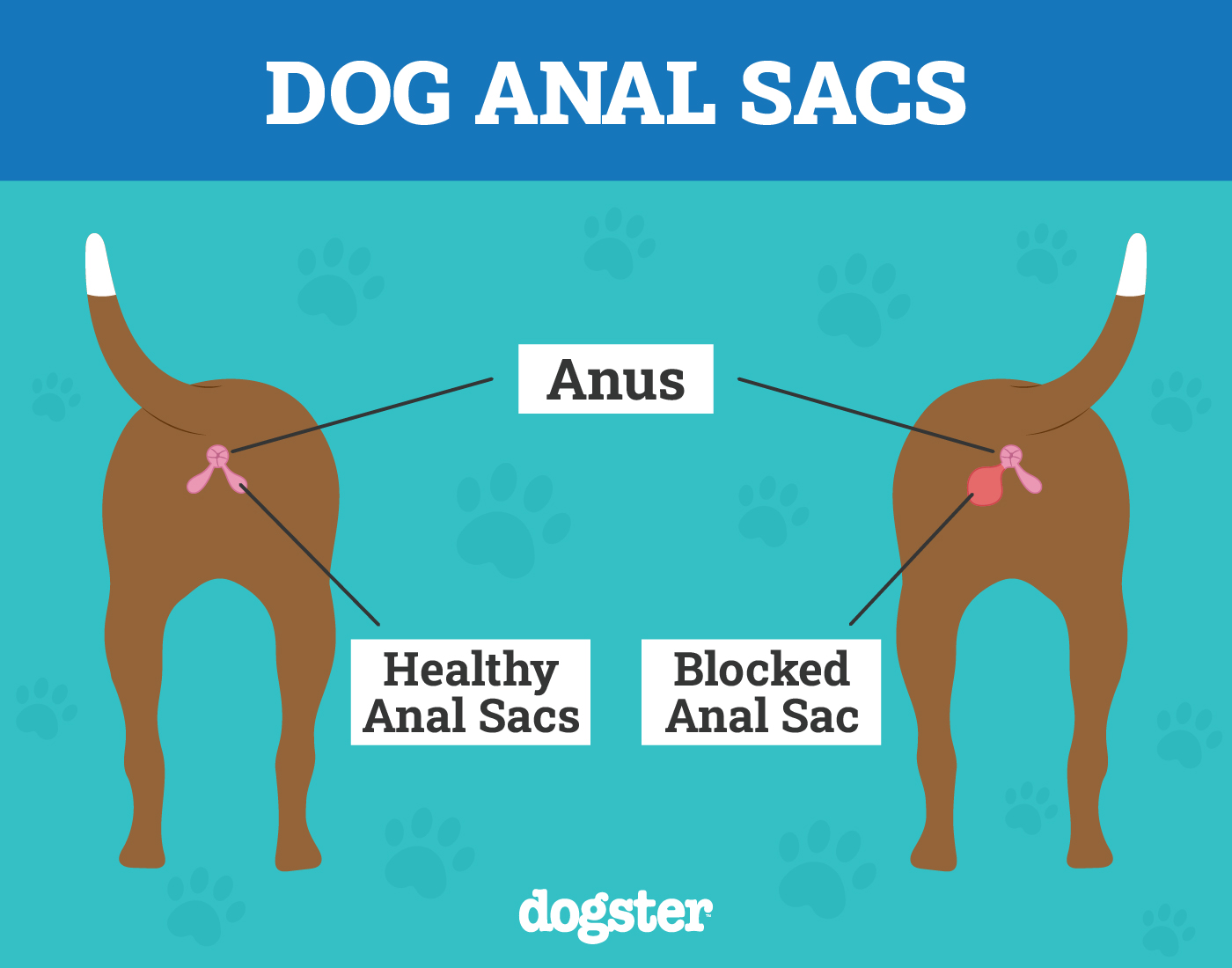
2. Parasites (Internal and External)
Your dog could be itchy due to external parasites like fleas and ticks. Certain internal parasites, such as tapeworms, can shed out your pup’s rectal area and contribute to scooting.
3. Allergies
Seasonal and food allergies are commonly involved in anal sacs inflammation. They can also contribute to soft stools, which can irritate the rectal area of your dog. In addition, the softer stool won’t express your dog’s anal glands as readily.
4. Grooming Issues
If your dog is not groomed regularly and develops matted hair, these hairs can cause discomfort and scooting. It’s also possible to over-groom your dog. Razor burn can irritate the skin, and bathing too frequently could contribute to dry, itchy skin, both of which could make your dog scoot.
Hepper's Wash Wipes</strong></a> because they're specially formulated to be safe for dogs of all ages, sizes, and breeds. The hypoallergenic formula contains natural, moisturizing ingredients that effectively remove dirt without irritating your dog's skin.</p>
<p><span style="font-size: 14px; color: #999999;"><em>At Dogster, we’ve admired Hepper for many years, and decided to take a controlling ownership interest so that we could benefit from the outstanding products of this cool pet company!</em></span></p>
</div>"}" data-sheets-userformat="{"2":12993,"3":{"1":0},"9":1,"10":1,"12":0,"15":"Calibri","16":8}">
Keeping your dog clean doesn't have to mean giving them a full bath. We like Hepper's Wash Wipes because they're specially formulated to be safe for dogs of all ages, sizes, and breeds. The hypoallergenic formula contains natural, moisturizing ingredients that effectively remove dirt without irritating your dog's skin. At Dogster, we’ve admired Hepper for many years, and decided to take a controlling ownership interest so that we could benefit from the outstanding products of this cool pet company!
Determining the Reason Why Your Dog Is Scooting
If your dog is scooting, having your veterinarian examine your pup is a good idea. The vet will likely start with a physical exam, including a rectal exam, to check the anal glands and surrounding rectal tissue.
Your veterinarian might suggest an intestinal parasite fecal exam to rule out intestinal parasites. They also may recommend a diet trial or fiber supplementation if your dog’s anal glands keep filling up and causing your dog discomfort.
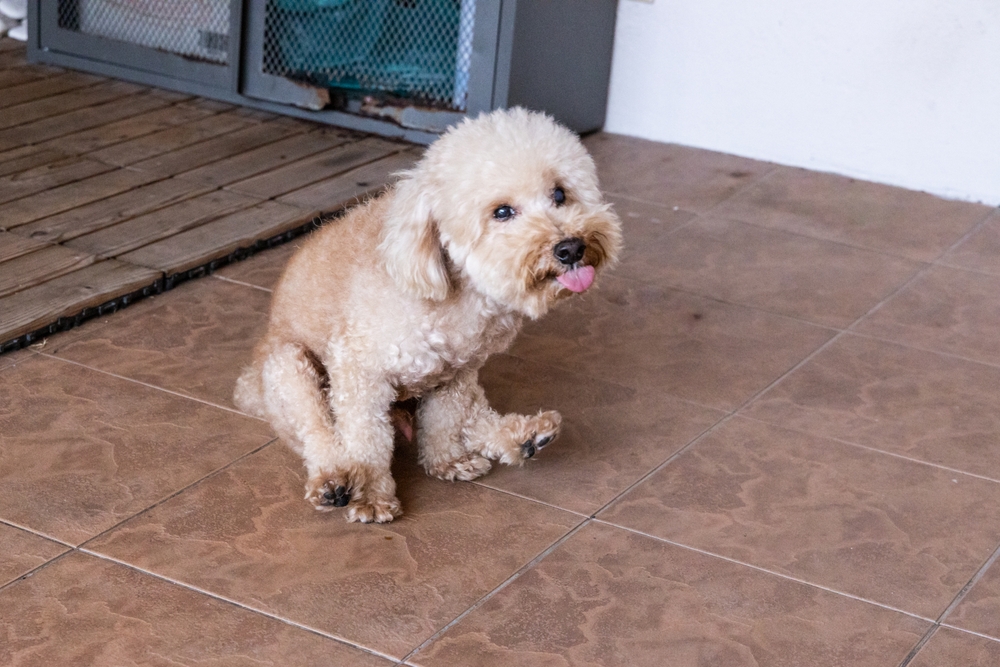
The 7 Home Remedies if Your Dog Is Scooting
1. Check the Anal Sacs
If you know how to express your dog’s anal glands, you could go ahead and try to express them. If you notice any swollen tissue or drainage, do not attempt expressing the anal glands yourself. Instead, schedule a veterinary visit immediately.
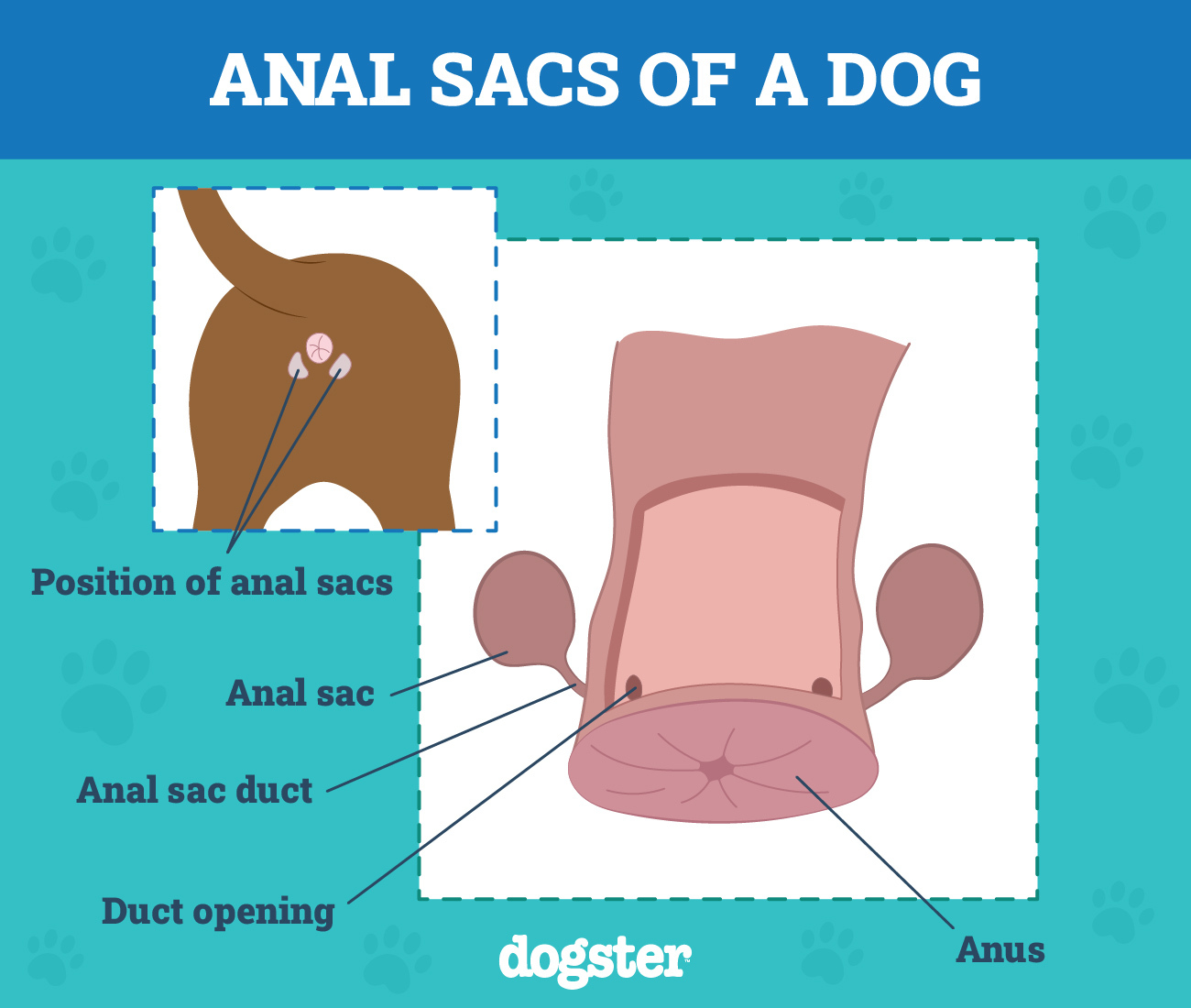
2. Warm Compress
You can place a compress on your dog’s rectal area if they’re scooting and making their backend inflamed. Check with your veterinarian before placing any medication topically on the area.
3. Increasing Fiber Intake
One of the best things you can do if your dog regularly scoots is to increase their fiber intake. Fiber has a dual purpose here. First, it helps bulk up your dog’s stool, which can help your pup express their anal glands naturally. Second, it helps regulate your dog’s bowel movements, often helping stop diarrhea and constipation.
You can increase your dog’s fiber intake in a few different ways:
- Add fiber in the form of a food topper, such as canned pumpkin puree. (Do not use pumpkin pie filling here; you’re looking for plain canned pumpkin puree with no sugar or spices.)
- Use Glandex, which comes in both a food additive and treat form to help regulate your dog’s anal glands.
- You can also speak to your vet about a human-grade supplement like Metamucil, which adds fiber.
PangoVet. It’s an online service where you can <b>talk to a vet online</b> and get the personalized advice you need for your pet — all at an affordable price!
</p>
<div class="su-button-center"><a href=https://www.dogster.com/ask-the-vet/"https://pangovet.com?utm_source=dogster&utm_medium=article&utm_campaign=dog-nutrition%22 class="su-button su-button-style-default" style="color:#FFFFFF;background-color:#FF6600;border-color:#cc5200;border-radius:9px;-moz-border-radius:9px;-webkit-border-radius:9px" target="_blank" rel="nofollow"><span style="color:#FFFFFF;padding:0px 24px;font-size:18px;line-height:36px;border-color:#ff944d;border-radius:9px;-moz-border-radius:9px;-webkit-border-radius:9px;text-shadow:none;-moz-text-shadow:none;-webkit-text-shadow:none"> Click to Speak With a Vet</span></a></div></div></div>"}" data-sheets-userformat="{"2":515,"3":{"1":0},"4":{"1":2,"2":16776960},"12":0}"> If you need to speak with a vet but can’t get to one, head over to PangoVet. It’s an online service where you can talk to a vet online and get the personalized advice you need for your pet — all at an affordable price!

4. Diet Trial
In some dogs, the anal glands fill up faster or become inflamed due to food allergies. Allergies can also cause our dogs to have soft stools.
There are over-the-counter options for novel protein foods, but your veterinarian can often suggest a hydrolyzed protein or truly novel protein diet, such as:
You’ll need to feed these foods only as part of a diet trial. You feed the food for a period, often eight to twelve weeks, to see if your dog has better skin and stool quality.
5. Sanitary Haircuts
Keep the hair around your pup’s back end neatly trimmed to prevent fecal matter and matted hair from bothering it. Taking your dog to a groomer regularly may be easier than doing it yourself. Just be careful not to trim too closely, as razor burn can also aggravate your dog’s sensitive tissues.
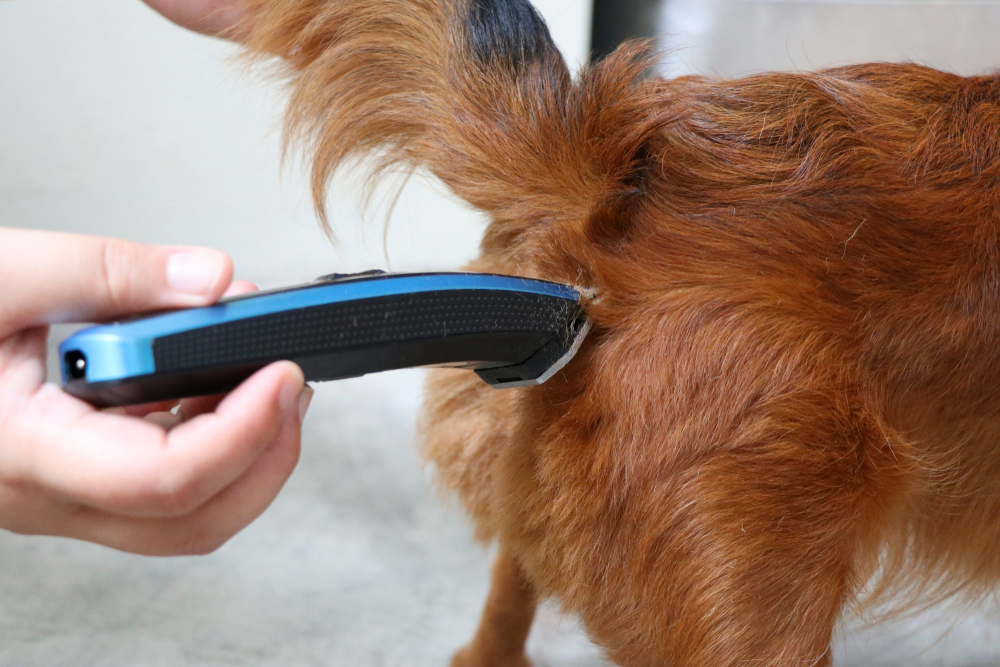
6. Diet and Exercise
Healthy living involves maintaining an appropriate caloric intake and performing adequate exercise. The same is true for people and pets. Proper nutrition and regular movement can help your dog have regular bowel movements and express their anal glands naturally in many cases.
7. Parasite Prevention
Use monthly flea and tick preventative products like Advantix and Simparica Trio. These parasiticides reduce the likelihood of your dog developing itchy skin from external parasites. Dogs typically get tapeworms by eating a flea infected with tapeworm larvae, so a good flea prevention product can also reduce the risk of certain internal parasites.
Frequently Asked Questions (FAQ)
What can I put on my dog’s irritated rear end?
You should talk to your veterinarian before applying topical medications to your dog’s rectal area. Some possible options include a spray with a steroid in it, like Gentacalm. Your veterinarian might also suggest other medicated sprays, like Vetricyn.
Will pumpkin help my dog if they’re scooting?
Pumpkin helps many dogs that experience regular scooting. It contains soluble fiber that, in essence, bulks up your dog’s stool. In addition to using canned pumpkin puree added to your dog’s food daily, you can use products like Glandex that use pumpkin as a main ingredient to help with the anal glands.
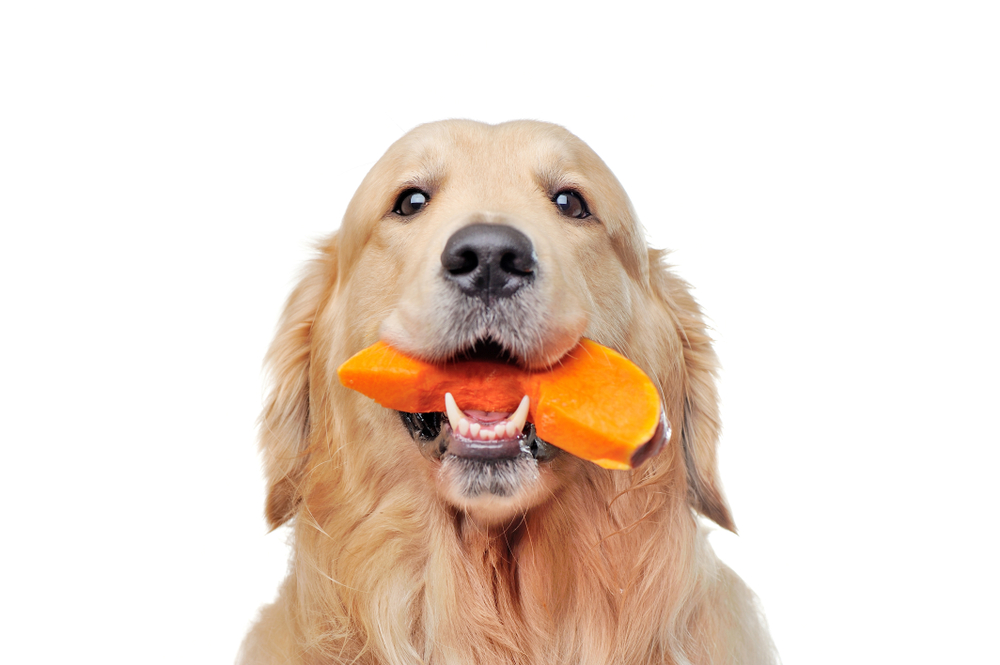
Conclusion
If your dog keeps scooting, there are several potential causes and treatments. Because the anal glands are often involved, many of the treatment possibilities target helping your dog express their glands regularly. Work with your veterinarian to find the underlying carte and develop an effective treatment plan.
Featured Image Credit: boyphare, Shutterstock

